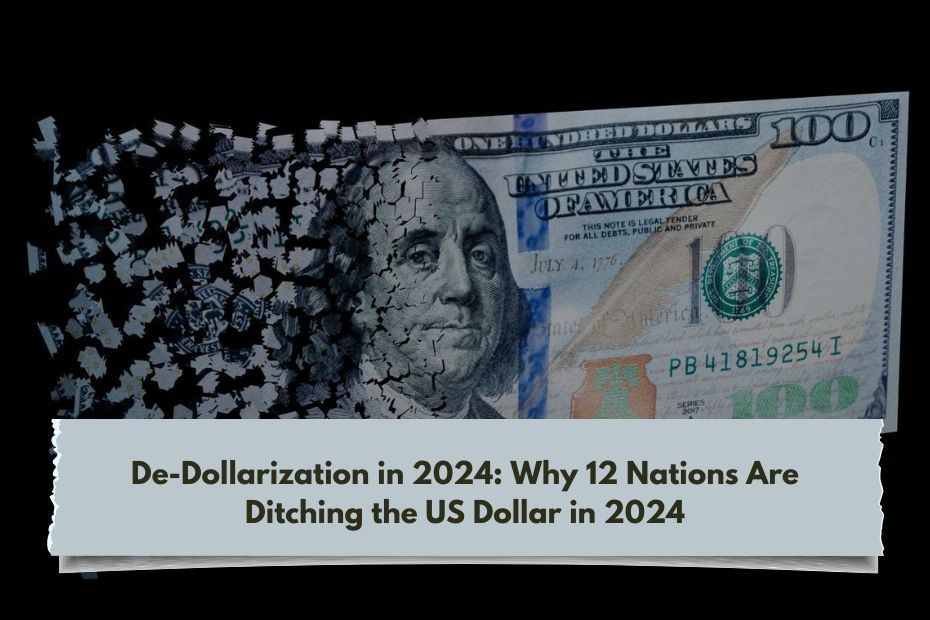Since ages, the US dollar has dominated global trade and finance. Recent shifts in geopolitics and economic strategies have encouraged various nations to de-dollarize—reduce the wholesale use of the dollar among important trading currencies. De-dollarization uses different currencies for international transactions to reduce mortgages on dollar risks.
De-Dollarization Understanding
De-dollarization is strategizing by nations to reduce the US dollar’s footing and relevance in their domestic economies and international trade. Different motivations between countries tend to drive the de-dollarization process, including economic sanctions, a quest for wider sovereignty over one’s own finances, and the quest for a more stable and diversified currency reserve.
Countries Leading the De-Dollarization Movement
| Country | Reason for De-Dollarization | Key Currency Used | Date/Period |
|---|---|---|---|
| China | Promoting yuan as an international currency | Yuan | Since 2011 |
| Russia | Use of yuan and other currencies under sanctions | Yuan | 2023 – Over 90% trade in yuan |
| India | Internationalization of rupee for trade | Rupee | Ongoing |
| Brazil | Trade deals with China using local currencies | Real, Yuan | March 2023 |
| Argentina | Reduced use of dollars for imports from China | Yuan | August 2018 |
| Iran | Trading in euro and other currencies bypassing dollar restrictions | Euro, Other currencies | Ongoing |
| Turkey | Reducing dollar transactions for international trade | Lira | Ongoing |
| Saudi Arabia | Broadening trade to include non-dollar currencies | Riyal, Other currencies | January 2023 |
| Malaysia | Advocating alternative currencies for trade | Various currencies | Ongoing |
| Venezuela | Pricing oil in euros, yuan, and other non-dollar currencies | Euros, Yuan, Others | August 2018 |
The Shift from Dollar towards Merits
Such a shift can have huge implications for the US dollar:
- World Trade: Greater use of alternative currencies could reduce the dominance of the dollar in international trade.
- Reserve Assets: The diversification of currencies in reserves may affect the dollar in terms of value and influence.
- Economic Independence: Nations will, in all probability, boast increased control over their countries, thus, high independence from external pressures.
What exactly is the meaning of De-Dollarization?
De-dollarization is the term applied to the process where countries get rid of dependence on the US dollar for their international trade and financial dealings, opting for one or more other currencies in order to optimize economic sovereignty.
Reasons Countries Embrace De-Dollarization
Countries seek de-dollarization to protect themselves from thralls created by the dollar’s volatile political and financial system, evade sanctions, and seize greater power over their cash flows.
Effects of De-Dollarization in a Global Economy
Overall, it magnifies the currency system, which would reduce the dollar’s strength and its predominance, thereby changing the face of global trade and finance.
Conclusion
What de-dollarization means is that it is a realignment of finance all over the globe; countries generally aim at minimizing their dependence on the dollar as they fly toward a much more stable, diversified currency system.
FAQ’s
Why are countries moving away from the US dollar?
To reduce risks and gain financial control.
Which countries are leading de-dollarization?
China, Russia, India, Brazil, Turkey, and Saudi Arabia.
What impact does de-dollarization have?
It reduces the US dollar’s dominance in global trade.

